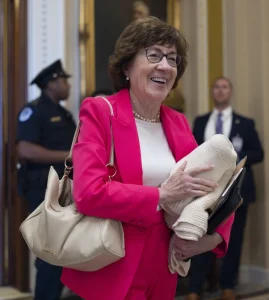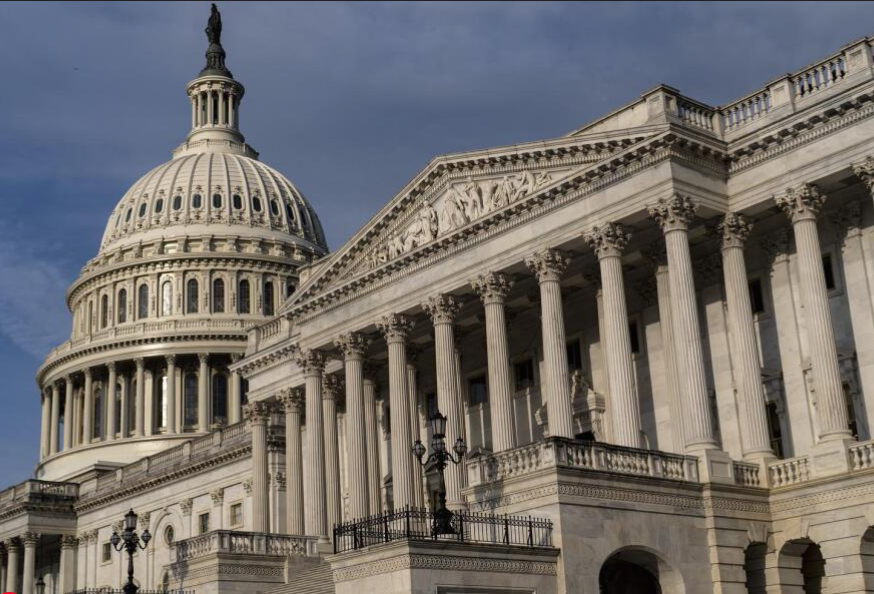Senate Republicans hauled President Donald Trump’s big tax breaks and spending cuts bill to passage Tuesday by the narrowest of margins, pushing past opposition from Democrats and their own GOP ranks after a turbulent overnight session.
The outcome capped an unusually tense weekend of work at the Capitol, the president’s signature legislative priority teetering on the edge of approval or collapse. In the end that tally was 50-50, with Vice President JD Vance casting the tie-breaking vote, reports AP.
Three Republican senators — Thom Tillis of North Carolina, Susan Collins of Maine and Rand Paul of Kentucky — joined all Democrats in voting against it.
“In the end we got the job done,” Senate Majority Leader John Thune of South Dakota said afterward.
The difficulty for Republicans, who have the majority in Congress, to wrestle the bill to this point is not expected to let up. The package now goes back to the House, where Speaker Mike Johnson of Louisiana had warned senators not to overhaul what his chamber had already approved. But the Senate did make changes, particularly to Medicaid, risking more problems ahead. House GOP leaders scheduled a Wednesday vote and vowed to put it on Trump’s desk by his July Fourth deadline, which is Friday.
It is a pivotal moment for the president and his party, as they have been consumed by the now 887-page “One Big Beautiful Bill Act,” which was its formal title before Democrats filed an amendment to strip out the name. Republicans are investing their political capital in delivering on their sweep of power in Washington.
Trump acknowledged it’s “very complicated stuff” as he departed the White House for Florida. “I don’t want to go too crazy with cuts,” he said. “I don’t like cuts.”
An analysis from the nonpartisan Congressional Budget Office found 11.8 million more Americans would become uninsured by 2034 if the bill became law. The CBO said the package would increase the deficit by nearly $3.3 trillion over the decade.
However, few Republicans appeared fully satisfied as the final package emerged, in either the House or the Senate.

Susan Collins fought to include $50 billion for a new rural hospital fund, among the GOP senators worried that the bill’s Medicaid provider cuts would be devastating and force them to close. While her amendment for the fund was rejected, the provision was inserted into the final bill. Still she voted no. The Maine senator said she’s happy the bolstered funding was added, but “my difficulties with the bill go far beyond that.”
All told, the Senate bill includes $4.5 trillion in tax cuts, according to the latest CBO analysis, making permanent Trump’s 2017 rates, which would expire at the end of the year if Congress fails to act, while adding the new ones he campaigned on, including no taxes on tips.
The Senate package would roll back billions of dollars in green energy tax credits, which Democrats warn will wipe out wind and solar investments nationwide. It would impose $1.2 trillion in cuts, largely to Medicaid and food stamps, by imposing work requirements on able-bodied people, including some parents and older Americans, making sign-up eligibility more stringent and changing federal reimbursements to states.
Additionally, the bill would provide a $350 billion infusion for border and national security, including for deportations, some of it paid for with new fees charged to immigrants.


